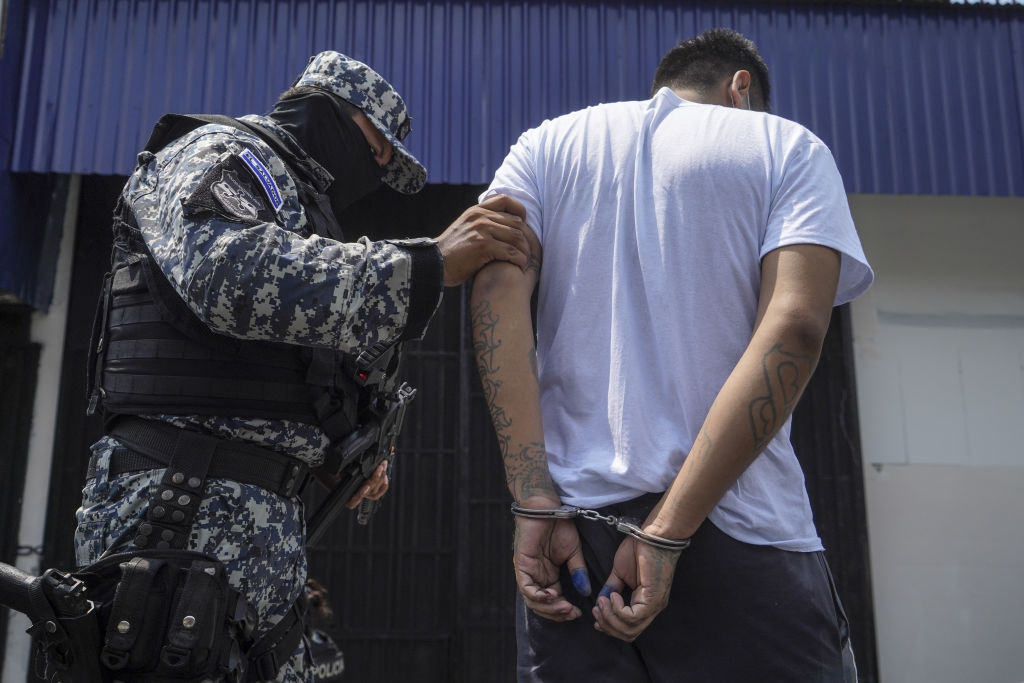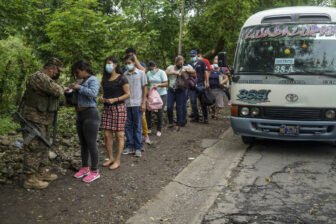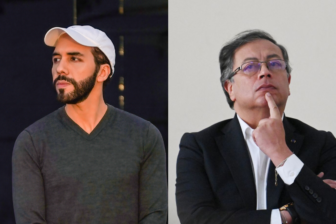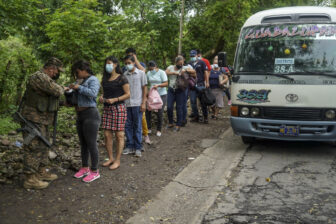Since March 2022, when the government of El Salvador imposed a state of emergency to reduce gang killings, the administration of President Nayib Bukele has arrested more than 64,000 people, equivalent to 2% of the country’s adult population. Millions have lost fundamental rights such as the right to legal counsel and due process—and foreign nationals are no exception. In April 2022, two Salvadoran-Americans were arrested along with dozens of others while attending a fundraiser for a man suffering from kidney failure. One of the two arrested was a high school student. After a local newspaper drew attention to the story, they were both set free.
That was likely only the tip of the iceberg. While there are no reliable figures on how many U.S. citizens are in Salvador, or how many have been arrested as part of Bukele’s round-up, it is reasonable to believe the number is important. The current travel advisory issued by the U.S. Department of State says the Salvadoran government has detained “several” U.S. citizens, some “in a reportedly arbitrary manner.” My own efforts to ascertain a number were met by a U.S. official telling me only that the situation is “fluid.” But consider that Salvadoran Americans are the third-largest Latino community in the United States, tied with Cubans, numbering more than 2.3 million people, and the scale of the problem starts to come into focus.
One reason that detentions of Salvadoran-Americans have been underreported might be that many of them are naturalized U.S. citizens and hold dual nationality. But for many Salvadoran-Americans, traveling to El Salvador includes visiting their places of origin in impoverished areas. Bukele’s raids disproportionately target anyone who “looks like” a gang member—which generally means poor, less affluent Salvadorans. White, affluent Americans like Bukele’s crypto and Bitcoin advisers Max Keiser and Stacy Herbert are not targets and have reportedly enjoyed special treatment under the state of emergency.
Meanwhile, the overcrowded Salvadoran jail system has turned the state of emergency into a policy that fosters torture, due process violations, disappearances, and even the deaths of innocent people who had found themselves behind bars. While the Bukele administration brags about the reduction in gang activity, the reported achievements have been tarnished by the leak of police documents to the press indicating that homicide statistics were manipulated to exaggerate the decrease in murders. Indeed, the official numbers showing a decrease in homicides coincide with a dramatic spike in disappearances in El Salvador. The United Nations reported that disappearances under the Bukele administration have worsened to reach 32 per 100,000 inhabitants in 2022, five times higher than the average disappearances in the U.S.
For Salvadoran-Americans living in the United States, speaking up about the abuses in their country of origin can be intimidating. Many Salvadoran-Americans worry that their extended family members still in the country could be punished, and so they prefer to stay quiet and hope their families in El Salvador can leave the country soon. In California, where more than a third of Salvadoran-Americans like myself reside, we witness a new wave of immigrants escaping from police repression exerted by Bukele’s security corps.
This new breed of Salvadoran refugee brings memories of the police and military repression of the 1970s that led to a civil war in 1980 that lasted 12 years. Instead of publicly voicing their grievances over unjust arrests of families and friends, Salvadoran-Americans rely on private messages to hire lawyers that defend their loved ones back in El Salvador or to channel their frustration against the Bukele administration. However, fear of retaliation runs deep.
Within two years, the Biden administration has gone from being a vocal advocate against human rights abuses by the Bukele administration to speaking out much less forcefully. The same can be said about the Republican Party. Late last March, Florida Senator Marco Rubio visited Bukele in San Salvador and praised him as a “democratic leader.” It is unclear why anti-communist Rubio considers Bukele—who once called himself a radical leftist—an ally when the Central American leader is running for reelection despite the Salvadoran Constitution specifically forbidding it.
Both the U.S. government and the Republican Party could do more. First, the Biden administration should acknowledge how many U.S. citizens have been detained in El Salvador arbitrarily and provide information about the victims’ backgrounds. This information could reveal whether there is a pattern of arresting Salvadoran-Americans in El Salvador. Secondly, the U.S. should acknowledge that the softening of its position toward the country will only result in many working-class Salvadoran-Americans facing unjust imprisonment back in El Salvador.
Salvadoran-Americans are a fundamental pillar of our society. Bukele’s state of emergency could also trigger a new immigrant flow of those fleeing both gangs and the police. Denouncing the unjust, arbitrary detention of Salvadoran-Americans in El Salvador can help the U.S. government heal its past support for authoritarians and reinstate the human rights of civilians, including Salvadoran-Americans.
—
Dr. Valencia is an assistant professor at California State University, Fullerton.







